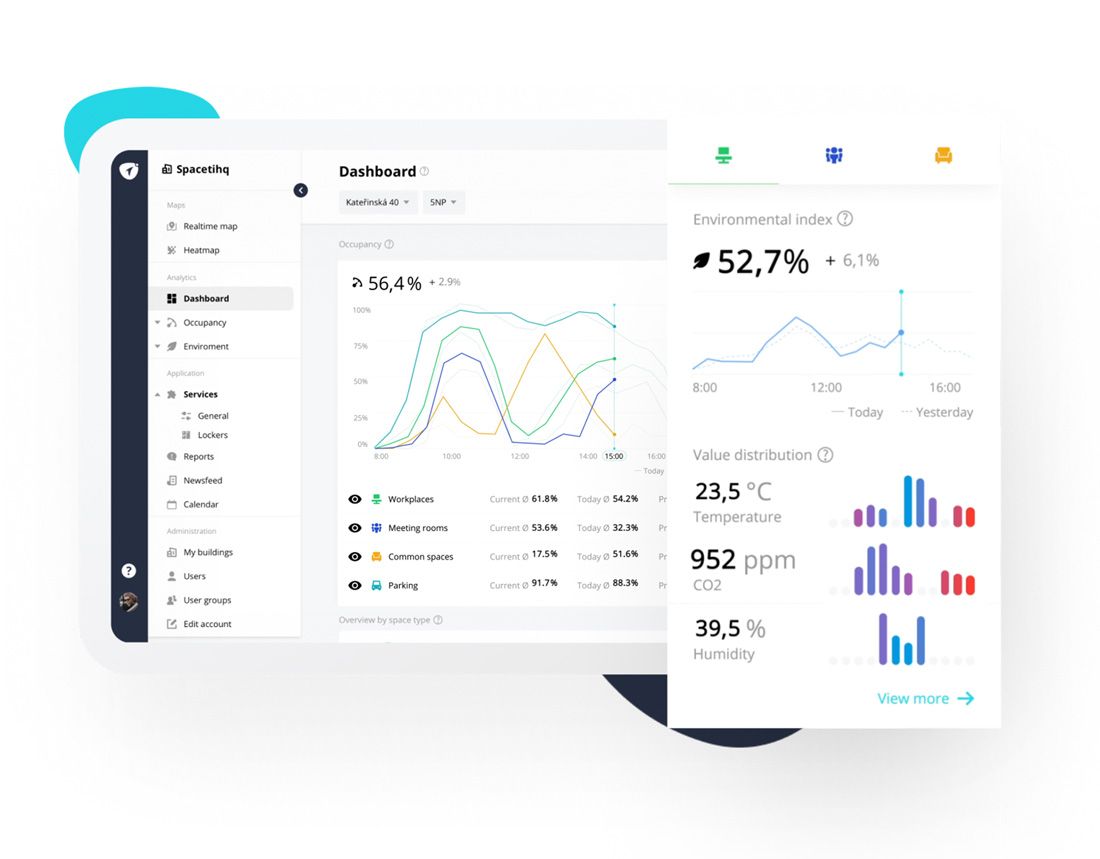Data Management
Search News
Challenges and Opportunities of Data Management in the Real-Estate Sector
An interview with Dan Hughes from The RED Foundation
The Future of Data Management
 The RED Foundation is a not-for-profit initiative set up to help the sector face the challenges and opportunities of data across the whole sector. They aim to connect people, projects, and initiatives that are already happening, and while many people are talking about data, conversations are often held within the traditional silos, meaning that solutions and benefits will usually be limited. Moreover, as ethical usage of data is not really on the real estate sector's agenda, The RED Foundation aims to make sure that it is. Below is an except from an interview Spaceti's Aakash Ravi conducted with Dan Hughes, the founder of Alpha Property Insight and The RED Foundation.
The RED Foundation is a not-for-profit initiative set up to help the sector face the challenges and opportunities of data across the whole sector. They aim to connect people, projects, and initiatives that are already happening, and while many people are talking about data, conversations are often held within the traditional silos, meaning that solutions and benefits will usually be limited. Moreover, as ethical usage of data is not really on the real estate sector's agenda, The RED Foundation aims to make sure that it is. Below is an except from an interview Spaceti's Aakash Ravi conducted with Dan Hughes, the founder of Alpha Property Insight and The RED Foundation. If you look at companies such as Spaceti, there are a huge number of advantages you can get from implementing your systems to understand a building’s performance, how it works with people, and how to improve its performance and efficiency. In the last few years, one of the significant shifts is that we worry much more about the people inside buildings. Are they healthy? Are they productive? People move jobs and buildings much more regularly, so everything’s becoming faster — much more human-centric.
The future of the real estate sector and professional services, in particular, will remain a very human, people-driven business. There’s a debate about the future with people at one extreme saying they're a people business so technology doesn’t matter, and at the other extreme people who believe that technology is coming along and will, automate everyone's jobs. Jobs in the future will change, but many of them will still be people-driven.
As an analogy, we can look at medicine. There may be times today where if I felt a bit of a headache for which I might have gone to the doctor in the past, now I might just google it and see what it is. But for anything more serious, I still want to go to a doctor if I walked in and found a doctor who said I only believe in technology and research from the 1940s, I would walk straight out. However, if I walked in and found a robot there, I’d walk out of there as well. I want to see a person who has the latest technology, insights, and data at their fingertips. I think that’s going to be true for the real estate sector moving forward, the best of humans and technology working together. For example, a property manager in an office building who is taking responsibility, a considerable part of their role will be how do we manage this building and the digital assets of this building on behalf of the consumer and the customer.
Moving forward, we’re going to be responsible for more and more data. That creates a huge number of problems because, if you’re collecting a handful of data points, that’s relatively easy to be responsible for.But as we get into the world of big data and machine learning, you’re talking about being responsible for millions of datasets from many different places, which becomes much more difficult. When we get into actual artificial intelligence and algorithms are constantly changing how can a person take responsibility for this data and how it is used in a responsible way? There are massive questions that we need to face in the sector? So alongside all those benefits, we need to take account of nature. Whether we should collect and use data and how we use it responsibly, the ethical questions are going to be one of the most significant challenges that the sector faces over the next decade.
The RED Foundation is supported by RICS, BPR, IRPM, IET, etc. They are keen for more representative bodies to sign up to support to help drive the agenda forward. They are also keen to encourage companies to work towards our 6 data ethical principles as a small but important first step.